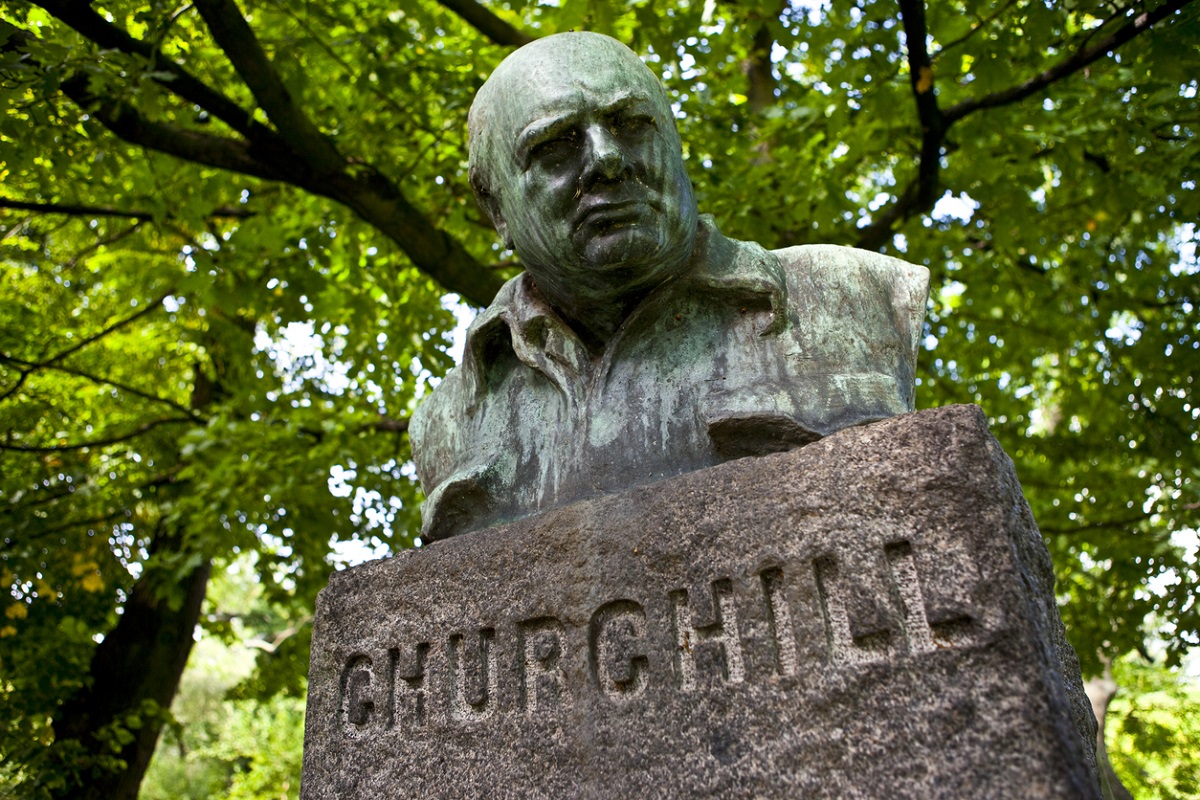Sinner leads Italy to Davis Cup semifinals; Australia edges past USA
Defending champions Italy advanced to the Davis Cup semifinals on Thursday after defeating Argentina 2-1, with world No 1 Jannik Sinner winning the singles and doubles match.
The list of Prime Ministers who had to resign despite having a majority in the house, is a fairly lengthy one, indicating the strength of a parliamentary democracy.

Winston Churchill Statue/Monument, Copenhagen. (Representational Image: iStock)
It was during the month of May some eight decades ago that Great Britain saw some of its greatness melting away.
It was one of the darkest days in its contemporary history but the presence of one man made all the difference. Under Winston Churchill’s leadership, the country saw hope and promise when he said in the House of Commons, “I have nothing to offer but blood, toil, sweat and tears”. Compare this with yet another month of May, in which a Prime Minister actually shed tears at her discomfiture in submitting her resignation.
These days, while the selection process for the successor of Prime Minister May is still underway, it is natural for speculation to be rife. Coming at this juncture, the Prime Ministership of UK is going to be a real crown of thorns and not only metaphorically.
Advertisement
Though both UK and USA are democracies, yet they have wide fundamental differences as the latter follows a presidential form of government. As we are aware, the election process for the US presidency is very lengthy, tedious and expensive, and mostly personality driven. The advantage, however, is that in the presidential system, once elected, the incumbent escapes the public grilling and day to day answerability as happens in a Parliamentary System, for instance the weekly round of questions for the Prime Minister in the House of Commons.
Mother of all Parliaments, the House of Commons is an arena where the strength or the weakness of a leader gets quickly exposed with many a stalwart having had to resign on the floor of the house. When Germany entered Rhineland in violation of Treaty of Versailles, Samuel Baldwin followed a policy of aloofness, later interpreted as appeasement. This was carried forward by Chamberlain, leaving the country with no option but taking her into a state of war with Germany.
Unable to defend his actions and policies, Chamberlain exposed his weakness at a time when the country was facing a crisis and serious reverses, leading to his resignation on the floor of the house. Sir Anthony Eden almost single-handedly precipitated the Suez crisis, but had to resign when his backroom manoeuvres became public, in the process causing embarrassment to France and Israel. His successor Harold Macmillan, too had to go, having made some statements on the Profumo scandal, which he later could not justify before the Commons.
The list of Prime Ministers who had to resign despite having a majority in the house, is a fairly lengthy one, indicating the strength of a parliamentary democracy. On the other hand Margaret Thatcher was at the helm of affairs for over a decade, had won a war, tamed the unions and left the country with a booming economy, while her Tory predecessor Edward Heath was unable to handle the unions and had to resign when the country was facing its worst energy crisis.
Almost being at the other extreme, Thatcher also had to resign but for a different reason, the feeling in her cabinet that she had become too domineering. Tony Blair despite winning three consecutive elections for the Labour Party faced criticism for his support to US for the invasion of Iraq which was also a violation of a UN resolution.
In the face of mounting criticism, he had to resign midway through his third term, while President Bush went on to complete his second term virtually unscathed. Robin Cook, the then British foreign secretary had resigned on the moral issue of joining the war with Iraq after a blistering attack on policy. At the same time Blair’s speech did not go very well as over 130 Labour MP’s voted against it.
Blair survived only because of the backing from the Conservative Party for the Iraq war. The different shades of democracy are all manifest in this situation where the principal character, the President of USA, was able to complete his full term but the one who was only lending support, the Prime Minister of UK, had to go prematurely. Faced with a similar situation, in the absence of any antidefection law, David Cameron on a major foreign policy issue could not get the requisite support in the House of Commons, ruling out British participation in any military strike against Syrian targets.
Now contrasting this with US presidency, except in case of Richard Nixon, who had to resign while serving his second term, there have been virtually no resignations from the top office. Nixon had to go for criminal obstruction of justice in the Watergate affair, several of his staffers having been already hauled up.
In contemporary history, notwithstanding the impeachment motion, Bill Clinton went on to serve two full terms and has been rated as one of the more successful US Presidents, though he may not have survived the House of Commons, had he been in UK, facing similar a situation.
Despite serious foreign policy issues, Jimmy Carter went on to complete his first term, albeit with difficulty and failed to get reelected. US Presidents thus have a certain degree of insularity. A strong political party system with emphasis on discussion and debate and even occasional dissent, has been the strength of the House of Commons, which over a period of time, has proved to be a great leveller and towers over most such institutions of democracy.
(The writer is a former Governor of Meghalaya and Uttarakhand and a former Commissioner of Delhi Police)
Advertisement